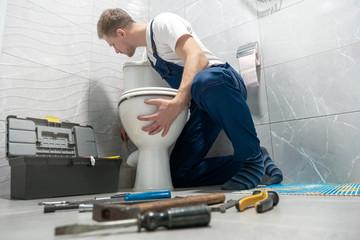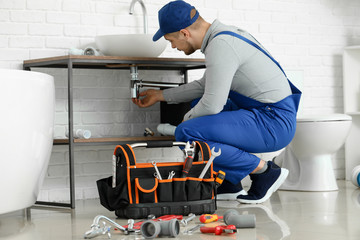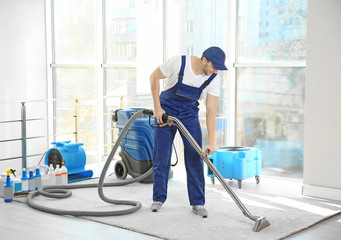As a hair oil, pure batana can help stimulate hair follicles to encourage growth. It’s also infused with the antioxidants and fatty acids needed to deeply penetrate your strands.

The natural healing and restorative properties of batana oil make it a great natural hair growth treatment. When applied to the scalp, it promotes healthy hair growth by stimulating the hair follicles to increase thickness and volume. Keep reading the article below to learn more about Batana Hair Oil.
It also helps to reduce hair breakage and improve elasticity, giving your hair a healthier look. The oil is made from the nuts of a tropical fruit called a palm, and it contains many essential vitamins and minerals that help to nourish your hair and keep it strong.
The oil is a popular choice among people suffering from thinning hair, as it can help to encourage new growth by nourishing the follicles and strengthening existing strands. It also has antioxidants that can help to protect the follicles from free radicals, which can cause damage and thinning. Additionally, the oil is rich in vitamin E, which can help to repair damaged hair and promote new growth.
However, it is important to note that although the oil may promote hair growth, it is not a miracle cure for thinning hair. Instead, it should be used as part of a holistic approach to improve your overall hair health, including making dietary changes and using supplements that can help stimulate follicles.
If you are interested in trying batana oil for your hair, be sure to buy it from a trusted supplier. The oil should be 100% pure and organic, without any additives or chemicals. It is also best to use it as a pre-shampoo treatment, as this will allow it to penetrate deeper into your hair and scalp.
To get the most out of this hair oil, it is recommended to massage it into your scalp and hair twice a week. After applying the oil, leave it in for a few minutes before washing it out. It is also a good idea to use the oil as a leave-in conditioner after you wash your hair, as this will help to strengthen and moisturize the strands.
While there is some anecdotal evidence that the oil can boost hair growth, no scientific studies have yet been conducted to confirm this claim. In addition, the oil is not proven to treat underlying causes of hair loss, such as alopecia areata or male pattern baldness.
Prevents Hair Loss
While it’s not a miracle solution for thinning hair, studies suggest that batana oil may promote healthy hair growth by stimulating the scalp and nourishing the follicles. It’s also packed with fatty acids, including oleic acid and linoleic acid, which improve nutrient absorption and encourage healthy hair follicle functions.
This nutrient-rich oil is extracted from the nuts of the American oil palm tree, which grows in Central and South America. The native people in these regions have been using this oil for generations to soothe their dry scalps and strengthen their hair strands.
The fatty acids in the oil are highly effective at strengthening the hair strands, which is essential for maintaining strong, resilient hair. It also helps reduce hair breakage and protects against damage caused by heat styling tools, UV rays from the sun, and other environmental pollutants.
It’s rich in Vitamin E, which works to repair and restore damaged hair strands, making them stronger and more resistant to breakage. This nutrient also helps prevent frizz and enhances shine, which gives the hair a healthier, more vibrant appearance.
Lastly, it’s packed with antioxidants, which help shield the follicles from free radical damage that can lead to oxidative stress and slow down cellular metabolism. This damage can lead to a variety of hair health issues, such as thinning hair and baldness.
To maximize the benefits of this hair oil, it’s recommended to use it regularly. A small amount of the product can be applied to the scalp as a pre-shampoo treatment or as a leave-in conditioner. It can also be mixed with other hair-nourishing ingredients to create a hair mask.
While this natural ingredient is generally safe to use, it can cause a rash or allergic reaction for those with sensitive skin or a nut allergy. To avoid any issues, it’s recommended to perform a patch test on the skin before attempting to use it. This simple step will ensure that the product won’t cause irritation or an allergic reaction.
Nourishes the Scalp
Like other hair oils, such as coconut, argan and rosemary, batana oil nourishes the scalp and supports healthy strands. It also has anti-inflammatory properties that help calm dryness, itching and sensitivity, which can be caused by some hair products or stress. It is rich in vitamins A and E, as well as healthy fats including oleic acid and palmitic acid.
Aside from promoting hair growth, batana oil may help treat hair damage by protecting the strands from environmental aggressors. It hydrates the strands and helps retain moisture, which can minimize the appearance of split ends and damage caused by heat styling tools, hair color treatments and high-heat environments. It also helps reduce frizz and adds a natural shine to the hair.
It can be used as a pre-shampoo treatment, applied directly to the scalp before washing. Alternatively, it can be used as a deep conditioner or leave-in treatment to smooth and moisturize frizzy hair. It can be mixed with other ingredients, such as rosemary oil or peptides, to boost the benefits and enhance results.
Choosing the best batana oil for hair depends on your needs and preferences. You should look for an organic, unrefined and sustainably-sourced product to minimize exposure to chemicals and support ethical harvesting practices. You can find it in pure form, such as Nature Spell batana oil, or it may be blended with other oils that have more proven benefits, such as castor oil, jojoba oil or avocado oil.
While batana oil can be used for a wide range of purposes, it is most effective when you apply it regularly and consistently. Some people notice a difference in their hair growth after only 2-3 months of applying it twice a week, while others see results after longer periods of time. Pairing it with a supplement such as biotin or keratin can further enhance the results to help you achieve thicker and healthier hair.
Reduces Split Ends
Whether your hair is brittle or dry, Batana Oil’s deep moisturizing properties nourish the hair follicles and improve elasticity. The oil contains a high concentration of essential fatty acids that fill in gaps in the hair cuticle to strengthen and protect the strands from further damage. This prevents split ends and helps your hair retain its length.
As an added benefit, the antioxidants in Batana Oil shield your hair from environmental damage. This includes harmful UV rays, pollution, and harsh weather conditions. This prevents premature hair aging, which often results in dry, brittle, and broken strands.
You can apply Batana Oil as a pre-shampoo treatment, a leave-in conditioner, or as a nourishing hair mask. Typically, you should leave the oil on for about 30 minutes to ensure that the nutrients penetrate the scalp and hair strands deeply. Depending on your scalp and hair type, you can even leave the oil in overnight to get a more intensive treatment.
If you have fine hair, using a smaller amount of the oil and washing it out quickly may help reduce strand breakage. It’s also a good idea to combine the oil with a few drops of essential oils like lavender and rosemary to improve your hair’s overall condition. Lavender soothes the scalp, and rosemary stimulates growth to keep your locks looking healthy and strong.
For dry and brittle hair, applying a small amount of the oil to the scalp twice a week can help nourish the follicles and promote healthy hair growth. It can also help repair and tame frizz, enhancing your natural curl pattern for a more polished look.
For healthy, resilient hair, you can use Batana Oil as part of a holistic regimen that also includes regular trims, gentle shampooing, and conditioning. You can also try scalp massages to encourage blood flow and stimulate the follicles. Lastly, make sure to use only high-quality oils and avoid over-moisturizing your hair. To prevent over-saturation, you should wash your hair with a mild, sulfate-free shampoo to remove any buildup of dirt, grease, or hair products before you start treating it with Batana Oil.







